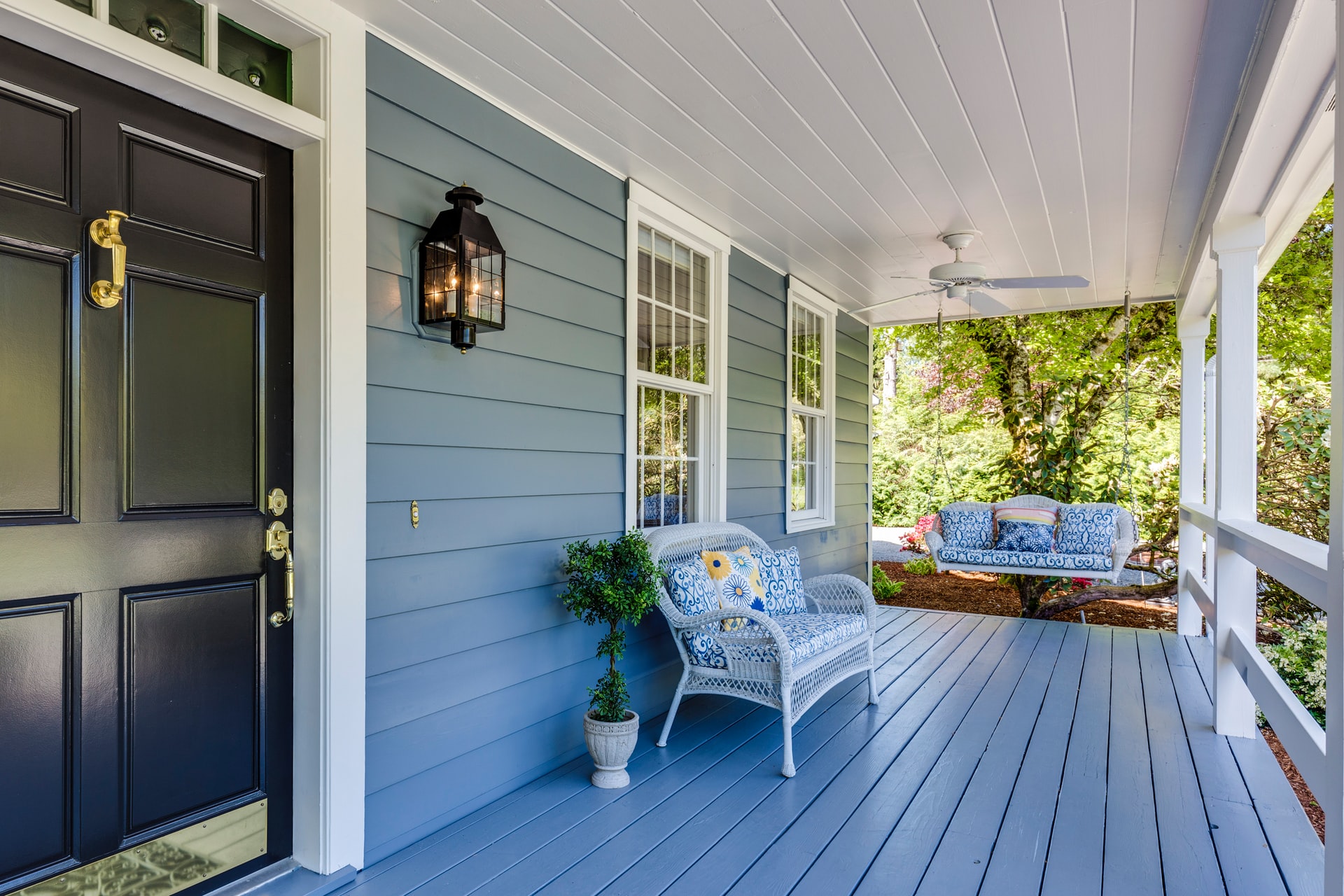Probably one of the largest expenses you have is your mortgage payment. Finding ways to lower this expense can free up some cash that you can allocate to other financial obligations. If you want to secure a lower mortgage payment on a house you’re planning to purchase or want lower monthly payments on a home you already own, you may wonder how you can do it.
Good news! There are various ways you can achieve this goal. Keep reading to learn more about the options that can help lower your monthly mortgage payment.
What Does Your Monthly Mortgage Payment Include?
A mortgage payment is how you pay back your home loan. When you take out a mortgage, your lender will give you a breakdown of what will be included in your monthly mortgage payment. Generally, it comprises four key components:
- Principal: This is the original amount of money you borrowed to buy a house. The principal is part of your monthly payments and is paid off over the life of your loan. Once you buy a home and start making payments, you reduce your loan amount each month.
- Interest: When you take out any loan, lenders charge interest in exchange for the amount borrowed. Interest is typically expressed as a percentage of the principal, which is paid down over the loan term. Many factors go into determining interest rates, including your credit history, debt-to-income (DTI) ratio, loan amount and the length of the loan.
- Taxes: When you buy a house, you must pay property taxes regardless of your location. The property tax bill you’ll pay depends on your local tax rates and the value of your property, which can change from year to year. Typically, each state has its own taxation system.
- Insurance: The last component of your mortgage payment is insurance. There are two primary types: homeowners insurance and private mortgage insurance (PMI).
Homeowners insurance is a perfect fit if you want to protect your home against natural disasters or accidents. You can have your lender set aside a portion of your monthly payments in an escrow account for homeowners insurance and pay them on your behalf when due.
Private mortgage insurance isn’t meant for everyone. You’ll only need to pay for it if you don’t make a sizable downpayment. However, lower down payments often present a huge risk to lenders, and for this reason, they might require private mortgage insurance in case a borrower defaults on their loan.
Can You Reduce Mortgage Payments?
Reducing mortgage payments can free up more space in your budget; luckily, it’s possible to trim your payments. Homeowners have several choices for reducing mortgage payments. Some of these strategies involve having a lump sum, while others involve making some changes to your current debt.
Options to Help You Lower Your Mortgage Payment
Lowering your mortgage payment can help you save on your monthly bill if your budget is tight. You can achieve this goal before closing on a home or if you already have an existing mortgage.
Before Closing on a Home Loan
When shopping for a mortgage to buy your dream home, one of the factors to consider is securing a lower mortgage payment. Here’s how you can do it:
Improve Your Credit Score
One of the most crucial aspects lenders look at when determining your eligibility for a loan and the interest rate you’ll get on your mortgage is your credit score. A high credit score can help you secure a lower rate and mortgage payment.
Before applying for a mortgage, ensure that you have good credit. Here are some of the practical steps you can take to improve your credit score:
- Pay bills on time
- Reduce your credit card balances
- Keep your credit utilization rate low
- Request for a credit rescore if you recently paid off your credit card balance
- Only apply for credit you need
You can get a loan even if you don’t have a good credit score. FHA loans can help, but you will have to contend with mortgage insurance premiums. It’s better to build your credit score by prioritizing debt repayment and balances on any credit card before buying a house. However, you have the choice to buy a home if time isn’t on your side.
Make A Larger Down Payment
Consider making a larger down payment to reduce your monthly payments when buying a home — the larger the down payment on your home, the lower the mortgage payment. One of the best ways to buy a house is to put at least 20% down. That way, you won’t have to pay private mortgage insurance, which can save you money. A higher lump sum payment, in the beginning, can shield you from higher interest rates since you are reducing the lender’s risk.
Reduce Your Mortgage Insurance
Another way to lower your mortgage when closing on a home is to keep your private mortgage insurance low. You can do this by paying the entire premium at closing or paying the premium upfront and monthly to secure a lower insurance rate on conventional loans. If you get an FHA loan, you can convert it to a traditional mortgage after reaching 20% equity to avoid MIP expenses.
Choose an Interest-only or an Adjustable-rate Mortgage (ARM)
Many borrowers prefer a 30-year mortgage to an adjustable-rate mortgage, but ARMs can offer a temporary solution to a high mortgage payment. Since the standard ARM period is three, five, and seven years, you can get lower interest rates and monthly mortgage payments. However, a fixed-rate mortgage offers more certainty since the rate always stays the same.
For Existing Mortgages
If you already have a mortgage and wonder how you can lower your monthly payments, here are some options to consider.
Extend Your Repayment Term
One simple way to lower your monthly payments is by extending your loan term. This is done by refinancing your mortgage to a new one. For example, if you have a 15-year mortgage, you can refinance to a new 30-year mortgage to lower your payments. Savings depend on individual circumstances. Not all applicants will qualify.
Make Extra Payments
If you get a windfall in the form of a bonus or inheritance, you can allocate the lump sum into your mortgage payments. This will help you reduce your principal and interest, which could lower your monthly mortgage payments. Some people make two monthly mortgage payments to get out of debt sooner. You aren’t required to make extra payments, but they will reduce your principal.
Get Rid of or Lower Your PMI
If you purchased your home and put down less than 20%, you’ll need to pay private mortgage insurance on top of your standard mortgage payment. However, you can get rid of your PMI by repaying your mortgage until you have 20% equity in your home. After that, request your lender to remove PMI, which lowers your mortgage payments.
Look For Lower Homeowners Insurance Rates
Homeowner’s insurance often changes from year to year. Shopping around for a better deal can lower your mortgage payments. Before swapping your insurance policy, ensure that you check with your lender about the process of doing it.
Challenge Your Property Tax Assessment
Property taxes affect monthly mortgage payments. You can challenge your property’s value assessment to reduce your tax bill. The tax savings can go right into your mortgage’s balance and reduce future payments.
Rent out Your Extra Space
If you have an extra space like a bedroom, basement, or attic, consider renting it out to reduce the cost of your monthly mortgage. Even if it’s just $200 per month, it will help you lower your payments. Those savings can add up in the long run.
Refinance Your Mortgage for Permanent Relief
Another option to consider is refinancing your mortgage, especially if the interest rate you’re currently paying is high. Refinancing from a high interest rate to a lower one could potentially lower your mortgage payments. You can choose the length of the mortgage, which has a big impact on monthly payments.
Who Qualifies for a Mortgage Refinance?
Mortgage refinance requirements vary from lender to lender and the type of mortgage you choose. Generally, you may qualify for refinancing your mortgage if:
- Your credit score is at least 580 for government-backed loans, 620 for conventional
- Your current mortgage is in good standing
- You have enough equity in your home, typically 20%
- Your DTI ratio is low, up to a maximum of 60%
- You have enough money to close
How to Get a Lower Mortgage Rate
Mortgage lenders will review your financial profile to assess your ability to repay the loan. People with higher credit scores and lower debt-to-income ratios tend to get lower mortgage rates since banks view them as less risky.
Lenders know that high-credit borrowers can work with many financial institutions and that it’s a low-risk return on their investment. These factors incentivize lenders to offer lower rates so high-credit borrowers work with them instead of competitors. Getting a new loan for your house may be a good idea if you have improved your credit score and debt-to-income ratio since you bought your property.







